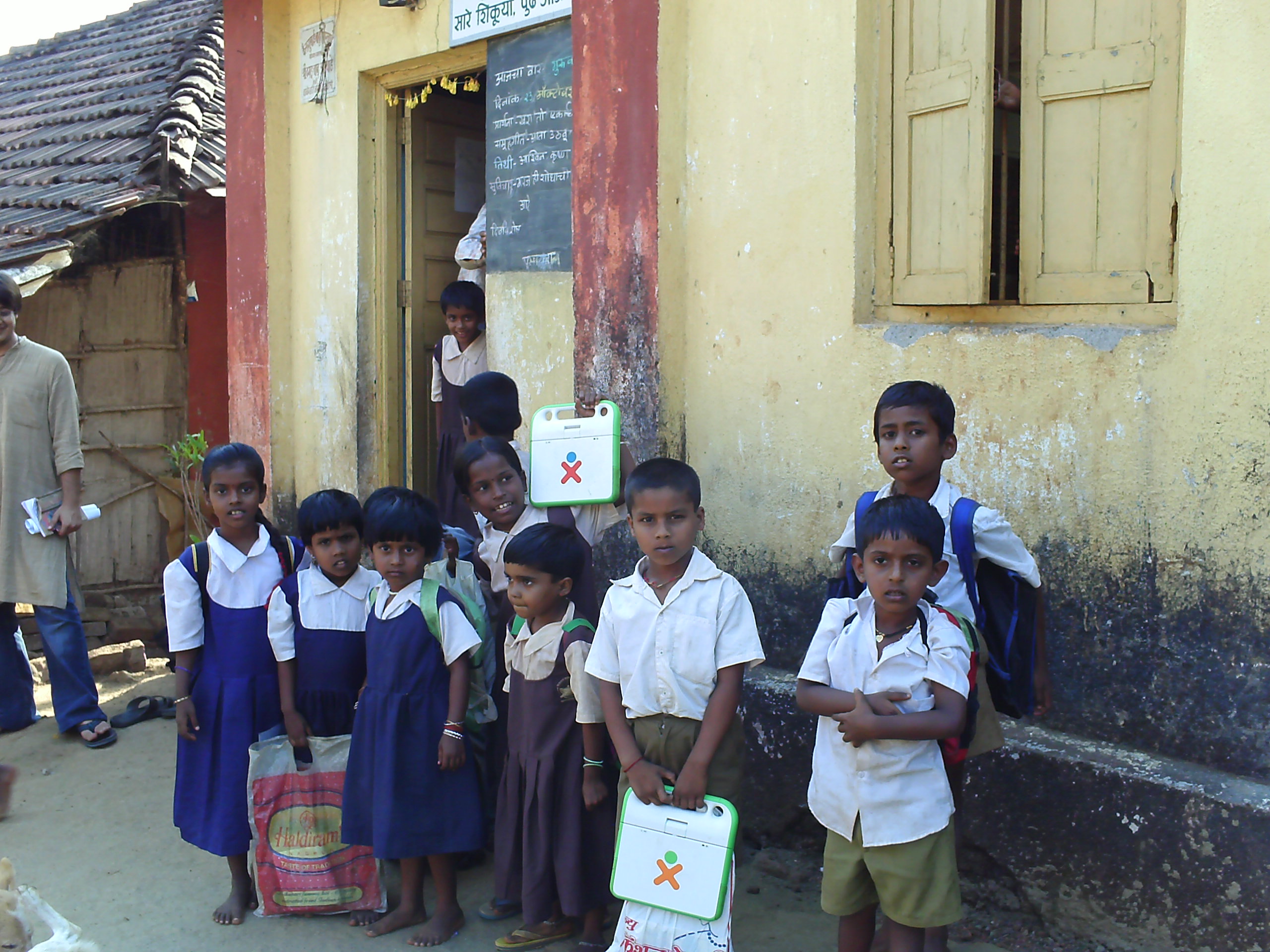Somebody Should Set The Title For This Chapter!
The school consists of a single classroom managed by a sole teacher. He teaches the languages, mathematics, physics, biology. He has also become the role model for children in this village. The children have become adept at using the XO laptop to write, paint, record, photograph, and to peruse other pieces of software on the laptop to learn about concepts like the solar system, and arithmetic. All this is wonderful, but first, some history.
Back in October 2007, OLPC in conjunction with Reliance ADA (an Indian conglomerate) and some volunteers began work on the Khairat pilot project. Their goals were modest. The school at Khairat had many advantages: a passionate teacher, a passionate team, and a passionate village community. The problems they faced were with respect to unreliable electricity, high humidity, irregular topography, a few school dropouts. Would laptops it make a difference? Would they even survive?
Reliance ADA, being in the telecommunications business, agreed to provide Internet access using a cell phone connection. The volunteers set up the connection and the teacher was given a short training session. Some of the volunteers even rigged up a mill and yoke to create a cow power prototype for charging laptops. Off they went, exploring their digital worlds in a small green laptop that they would tote every day from home to school and back. In November 2008, I had the opportunity to visit Khairat as part of a research project. In my observations I found that the children had done a remarkable job of learning to use the XO and to purpose it for their own work and fun. They had documented events such as Mahatma Gandhi's birthday (October 2), and a visit by a tight rope walker troupe. They were quick to open the Paint activity and whip up a local scene. They were fluent in writing their names in English, Hindi and Marathi, oblivious to the fact that hundreds of volunteers worldwide had contributed to language translations to bring such features to communities like Khairat.

The XOs are currently used in Khairat as the primary method of instruction. The blackboards gather dust with remains of lessons from a year ago. The teacher teaches mathematics by creating "fill in the blanks" problems in Marathi, the local language using the Write activity. The children use their XOs and fill in the blanks. As the children fill in the answers, the teacher sees the characters appear magically on his screen. All these players are oblivious to the fact that their computers carry some of the world's most advanced networking technologies for collaboration. Mesh networks, collaborative word processors, and other bits that first-worlders haven't seen in their classrooms as yet! The teacher simply commands his class to "go to the neighborhood and join the mesh".
These six-year old charmers are truly standing on the shoulders of giants. We hope that many a toothless grin will address a boardroom or a swarm of voters someday. We hope that the XO along with Sugar will help these children open a window into the world we take for granted. We hope that some day, they will address problem that we have not been able to. We hope that some day, they will find ways to make their homes and families healthier, safer, and happier. The children and the teacher have done remarkably well in two years. They are headed towards bright future, and we hope the worldwide OLPC and Sugar communities can help them get there.
This essay is written by Dr. Sameer Verma based on his visit to Khairat in November 2008. Dr. Verma is an Associate Professor of Information Systems at San Francisco State University in San Francisco, California. His research includes diffusion and adoption of sustainable and innovative technologies.





